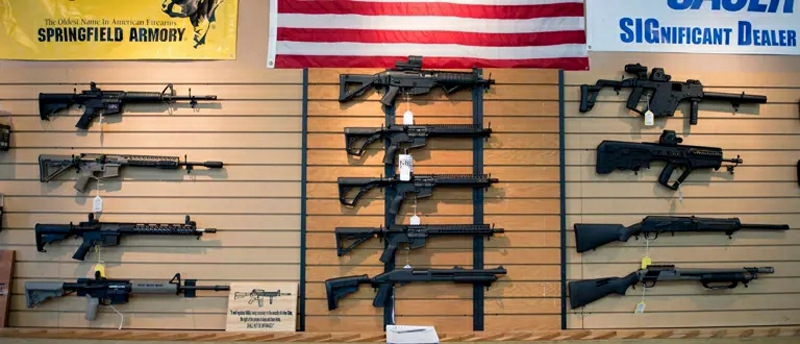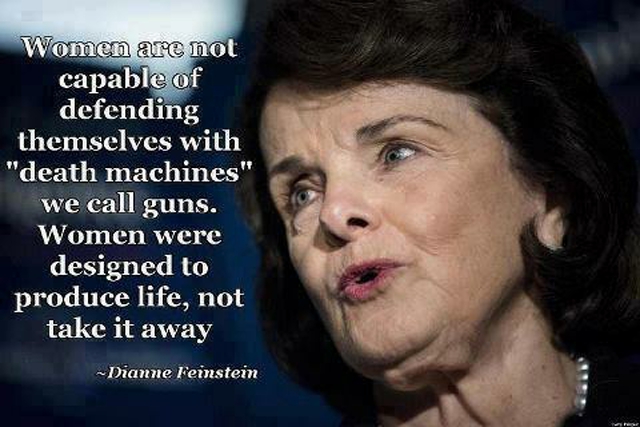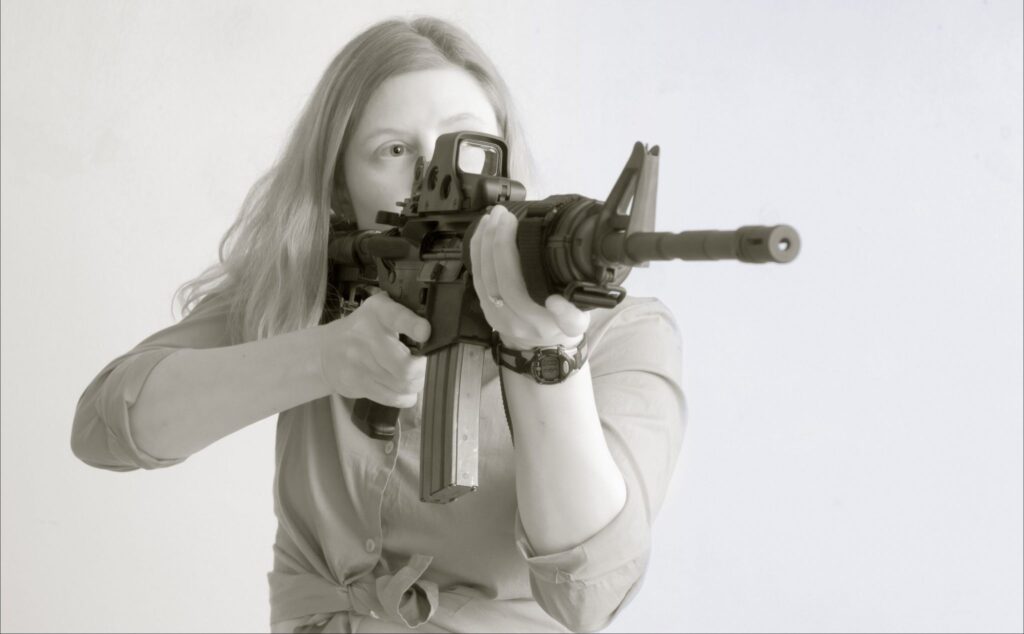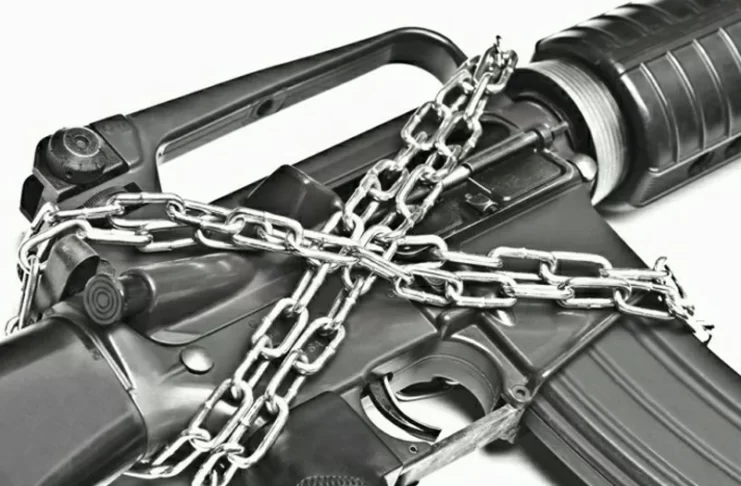by William Lawson GunMag Warehouse
Judge Roger T. Benitez has done it again. Long known for his strong rulings favoring Second Amendment rights over government restrictions, Judge Benitez has now ruled, in Miller v. Bonta, that California's “assault weapons” ban is unconstitutional. This is obviously a major victory for gun rights advocates, and hopefully the first step in ridding the nation of such onerous bans.
The ruling has been issued, but that doesn't mean Californians can head out and buy themselves an AR-15. California will certainly appeal, and Judge Benitez imposed a 10-day stay on his decision to give the state time to do just that. We'll address what that appeal will look like shortly. For now, let's look briefly at the decision itself. This will not be a deep examination, because the decision runs for 79 pages. But we can hit the highlights and get the general gist. The decision's entire text is available online from the Firearms Policy Coalition.
History and Judicial Duty
Judge Benitez begins by citing the 2008 Heller Decision, writing that “Americans have an individual right to keep and bear firearms.” He goes further with Heller's argument that the Second Amendment “guarantee[s] the individual right to possess and carry weapons in case of confrontation.” Heller, in this instance, cites Common Law as chronicled in the English jurist William Blackstone's Commentaries, which states that “This may be considered as the true palladium of liberty…The right to self defence is the first law of nature: in most governments it has been the study of rulers to confine the right within the narrowest limits possible.” Blackstone's point was that Common Law, upon which most American legal traditions are based, was more liberal in recognizing the right to self-defense than most, if not all, other governments. Judge Benitez clearly counts California among Blackstone's “most governments,” and not in a good way. Never mind how the British government has turned from its traditions.
Judge Benitez continues, writing that “Whether citizens ever fire or need to fire their weapons, is not important. This guarantee [the Second Amendment] is fully binding on the States and limits their ability to devise solutions to social problems. And the guarantee protects ‘the possession of weapons that are “in common use,'” or arms that are ‘typically possessed by law-abiding citizens for lawful purposes.' These are the decisions this Court is bound to apply. ‘It's our duty as judges to interpret the Constitution based on the text and original understanding of the relevant provision—not on public policy considerations, or worse, fear of public opprobrium or criticism from the political branches.'”
“In Common Use”
Judge Benitez goes on to explain how California prohibits so-called “assault weapons” based on cosmetic features while allowing firearms with equal or similar performance characteristics to be legally purchased and owned. He then addresses the fact that California bases its prohibitions on perceptions regarding such firearms' use in high-profile shootings. “The California legislature,” he writes, “at a time in the past when the lower courts did not recognize an individual's right to keep firearms and in a state that has no constitutional analogue to the Second Amendment, balanced that interest above and against its law-abiding citizens who wanted these firearms for self-defense.”

“That was then,” he continues, “Today, the Supreme Court has very clearly ended modern interest balancing when it comes to the Second Amendment. The Second Amendment, the Court said, ‘is the very product of an interest balancing by the people and it surely elevates above all other interests the right of law-abiding, responsible citizens to use arms for self-defense.' It is ‘this balance—struck by the traditions of the American people—that demands our unqualified deference.'” Benitez continues, writing that “The American tradition is rich and deep in protecting a citizen's enduring right to keep and bear common arms like rifles, shotguns, and pistols. However, among the American tradition of firearm ownership, there is nothing like California's prohibition on rifles, shotguns, and handguns based on their looks or attributes. Here, the ‘assault weapon' prohibition has no historical pedigree and it is extreme. Even today, neither Congress nor most states impose such prohibitions on modern semiautomatic arms.”
Judge Benitez then says that Americans own 24.4 million AR-15 and AK-47 platform rifles. That presumably includes other models, but you get the point. 61 percent of AR-15 owners said that self-defense was at least part of their reasoning for owning such a rifle. Those figures come from California's own research. The judge later states that 200,000 privately owned tasers were enough for the Supreme Court to declare them “in common use,” and therefore legal. 24.4 million seems to make the cut.
Self-Defense and Criminal Numbers
Judge Benitez then cites the Centers for Disease Control and Prevention study that estimated defensive gun uses to be between 500,000 and 3,000,000 per year. That's the study commissioned by the Obama Administration, which was quietly set aside when it didn't return the hoped-for results. It's also the study that gun control groups successfully pressured the Biden Administration to remove from the CDC's website because it interfered with their gun control efforts. Benitez also cites another recent study placing defensive gun uses at 1,670,000 per year.
The judge goes further by relating specific instances in which an AR-15 was successfully used for self-defense, as in the case of “Jane Doe,” a pregnant woman defending her family. He writes that such stories are buried while horrific murders are trumpeted, despite the self-defense stories far outnumbering the tragedies.

Finally, Judge Benitez flips the script on AR-15 usage, writing that “California's ‘assault weapon' ban takes away from its residents the choice of using an AR-15 type rifle for self-defense. Is it because modern rifles are used so frequently for crime? No. The United States Department of Justice reports that in the year 2021, in the entire country, 447 people were killed with rifles (of all types). From this, one can say that, based on a national population of 320 million people in the United States, rifles of any kind (including AR-15s) were used in homicides only 0.0000014% of the time. Put differently, if 447 rifles were used to commit 447 homicides and every rifle-related homicide involved an AR-15, it would mean that of the approximately 24,400,000 AR-15s in the national stock, less than .00001832% were used in homicides. It begs the question: what were the other AR-15-type rifles used for? The only logical answer is that 24,399,553 (or 99.999985%) of AR-15s were used for lawful purposes.”
Benitez includes other statistics, which you can read for yourself if you like, but he says it boils down to California's government employing a “means-end scrutiny that Bruen has made irrelevant for judging the constitutionality of a firearm ban because the People of the United States have already made the decision long ago to protect a citizen's choice to possess and use any common firearm for self-defense.”
Did you catch that? The People of the United States have made the decision. How utterly refreshing to see a government official recognize that it is indeed for the People to decide.
Finally, Judge Benitez questions the gun control narrative regarding the relative worth of people's lives, writing that “This Court understands the unquestionable tragedy caused by lawless individuals using modern semi-automatic guns or any gun to injure or kill innocent men, women, or children. Their lives are important. But are their lives any more important than Jane Doe's or the lives of her family? We hear constantly about mass shootings for days and weeks and on anniversaries. But how often do we celebrate the saving of the life of Jane Doe because she was able to use a semi-automatic weapon to defend herself and her family from attackers? Are the lives of Jane, John, and Junior Doe worth any less than others? Are they less important?”

A Long Opinion
Judge Benitez's opinion is 79 pages long. I could bore you with the legal citations and all that, but I think you get the point. Benitez argues his points brilliantly, as usual, and even does the state's work for them. The state was required, under last year's Bruen Decision, to show that laws analogous to the “assault weapons” ban were part of American history and tradition at the time the Second Amendment was ratified in 1791. To say that their efforts bore little or no fruit would be understating the fact.
But Judge Benitez examined their arguments and even expanded them to show that they do not meet Bruen's requirements. It's a pretty epic takedown of the state's arguments, especially since most of their examples were Jim Crow-era laws aimed at denying the use of arms to minority citizens. Literally Ku Klux Klan-inspired stuff. It's actually embarrassing that California would justify its laws by citing such things. But that's literally all they had. It shows how far gun controllers will go to justify their actions.
The Conclusion
Let's skip ahead to Judge Benitez's emphatic conclusion, in which he writes that “The State's attempt to ban these popular firearms creates the extreme policy that a handful of criminals can dictate the conduct and infringe on the freedom of law-abiding citizens. As Heller explains, the Second Amendment takes certain policy choices and removes them beyond the realm of permissible state action. California's answer to the criminal misuse of a few is to disarm its many good residents. That knee-jerk reaction is constitutionally untenable, just as it was 250 years ago. The Second Amendment stands as a shield from government imposition of that policy.”
He continues, “There is only one policy enshrined in the Bill of Rights. Guns and ammunition in the hands of criminals, tyrants, and terrorists are dangerous; guns in the hands of law-abiding responsible citizens are necessary. To give full life to the core right of self-defense, every law-abiding responsible individual citizen has a constitutionally protected right to keep and bear firearms commonly owned and kept for lawful purposes. In early America and today, the Second Amendment right of self-preservation permits a citizen to ‘repel force by force' when ‘the intervention of society in his behalf, may be too late to prevent that injury.' Unfortunately, governments tend to restrict the right of armed self-defense. Punishing every good citizen because bad ones misuse a gun offends the Constitution. A state supreme court in 1878 said it succinctly: ‘If cowardly and dishonorable men sometimes shoot unarmed men with army pistols or guns, the evil must be prevented by the penitentiary and gallows, and not by a general deprivation of a constitutional privilege.'”
Benitez finishes by quoting Justice Samuel Alito's concurring opinion to the Bruen Decision: “Today . . . many Americans have good reason to fear that they will be victimized if they are unable to protect themselves. And today, no less than in 1791, the Second Amendment guarantees their right to do so.”
I see no need to comment on Judge Benitez's conclusion. It speaks for itself.

Going Forward
California will appeal to the 9th Circuit Court of Appeals. Judge Benitez knew that and stayed the decision for ten days so the appeal could be lodged. Given the 9th Circuit's latest shenanigans regarding the California magazine ban case (also decided by Judge Benitez), we can expect this decision to be overturned on the flimsiest of legal excuses. In fact, the 9th Circuit will likely apply the same interest balancing test it always has, in direct defiance of Bruen's directive. We can be certain that the 9th Circuit will grant California's request to stay Judge Benitez's decision pending the appeals process.
So, this is a very positive first step, but there are many more steps to come. I fully expect this case to go all the way to the Supreme Court, especially since other “assault weapon” ban challenges, as in Illinois, have upheld the law, usually employing the proscribed interest balancing criteria. Conflicting lower court decisions make it more likely that the Supreme Court will get involved. It's entirely possible that this case could be combined with one or more similar cases when it gets to the high court.
But, again, that will take a while. The Supreme Court likes things to play out as much as possible in the lower courts before they act. So, we're likely looking at a year, at least. Probably more than that. But we are on the track. We'll keep you updated as this case moves forward.
Find the original article in its entirety on GunMag Warehouse.


